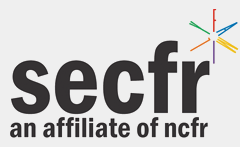Proposal Focus
Practice
Presentation Type
Poster
Abstract
Couple relationships directly affect parenting practices, which in turn affect outcomes for children. More so, at-risk couples are more prone to exhibit conflictual relationships, elevated parenting stress, and behaviors that increase their children’s vulnerability to negative physical, emotional, and behavioral outcomes. Couples relationship education (CRE) programs have been found to positively influence couple functioning, which in turn has been linked to improved parenting behaviors. Supported by a federal grant, Project F.R.E.E.(www.ugaprojectfree.com) provides CRE to at-risk parents engaged in child welfare services in order to improve couple and co-parenting functioning. This presentation will share results from a study examining changes among a sample of married and unmarried couples in self-reports of coparenting quality, parenting stress and parenting behaviors. Variations in change based on parents’ gender, marital status, and developmental timing of program delivery will be explored.
Keywords
Couples, Parenting, Relationship Education
Location
Cornerstone Ballroom
Start Date
12-4-2019 3:00 PM
End Date
12-4-2019 4:00 PM
Included in
Variations in Coparenting and Parenting Functioning Among At-risk Couples Following Participation in Couples Relationship Education
Cornerstone Ballroom
Couple relationships directly affect parenting practices, which in turn affect outcomes for children. More so, at-risk couples are more prone to exhibit conflictual relationships, elevated parenting stress, and behaviors that increase their children’s vulnerability to negative physical, emotional, and behavioral outcomes. Couples relationship education (CRE) programs have been found to positively influence couple functioning, which in turn has been linked to improved parenting behaviors. Supported by a federal grant, Project F.R.E.E.(www.ugaprojectfree.com) provides CRE to at-risk parents engaged in child welfare services in order to improve couple and co-parenting functioning. This presentation will share results from a study examining changes among a sample of married and unmarried couples in self-reports of coparenting quality, parenting stress and parenting behaviors. Variations in change based on parents’ gender, marital status, and developmental timing of program delivery will be explored.

